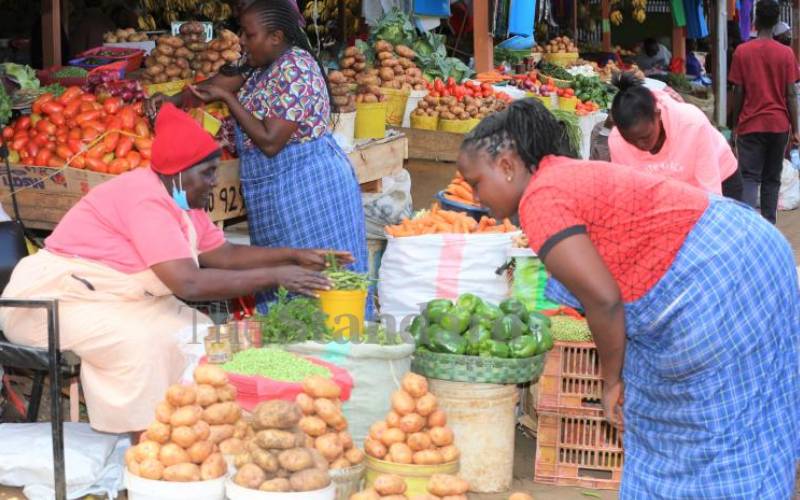×
The Standard e-Paper
Smart Minds Choose Us

Traders at Eldoret Market, Uasin Gishu County, January 8, 2022. [Peter Ochieng, Standard]
Kenyans struggled to put food on the table last month as food prices rose by 8.89 per cent compared to the same month in 2021.







